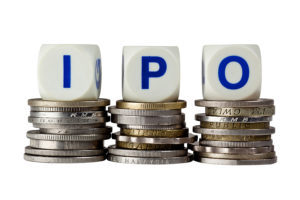In August I received an invitation by mail – complete with an offering prospectus and stock order sheet – to subscribe for shares in the initial public offering (IPO) of Ponce de Leon Bank, a Bronx, NY-based savings institution where I have a CD.

I’ll admit upfront I barely know anything about Ponce de Leon Bank. I walked into a bank branch in northern Manhattan in 2002, specifically hoping that one day I’d be invited to participate in their IPO. My plan worked, a mere 15 years later.
In September I put in my order for PDLB at $10 per share.
The stock opened at $14.90 on October 2. Go me!
I don’t want you to think I normally get invited to participate in IPOs, which are generally reserved for institutions and extremely high net-worth people. Like, normally if you don’t have $100 million with a brokerage firm, it’s not worth asking about getting into the offering. The key to participating in this IPO is that I am a depositor, and Ponce de Leon Bank was a “mutual bank.”
Of the estimated 5,787 FDIC-insured banks in the United States an estimated 577 of them are mutually-owned banks , which means they were not founded by private or public investors, but rather by depositors.
That means that when the bank management of a mutually-owned bank decides to go public – as quite a few banks decide to do each decade – the first people in line with rights to buy shares are its depositors. Like me. Also interestingly, although I opened just a $1,000 CD at Ponce de Leon Bank back in 2002, the offering prospectus gave me (and every depositor) the right to order up to $300,000 worth of shares. I didn’t, but the cool possibility is that I might have. A boy can dream, right?
Normally I’m opposed to even attempting to participate in IPOs, since the information-disadvantage between buyer and seller is too great. What I mean by that is that when startup owners and private equity owners of companies decide to sell shares in an IPO, they generally know far more about the business than do the purchasers of shares. Since the insiders are selling – the very definition of an IPO – it seems illogical to be overly excited as an outsider to buy. Even Warren Buffett agrees with me. Ok, more like I agree with him, when he wrote that “It’s almost a mathematical impossibility to imagine that, out of the thousands of things for sale on a given day, the most attractively priced is the one being sold by a knowledgeable seller (company insiders) to a less knowledgeable buyer (investors.)













Leave A Comment